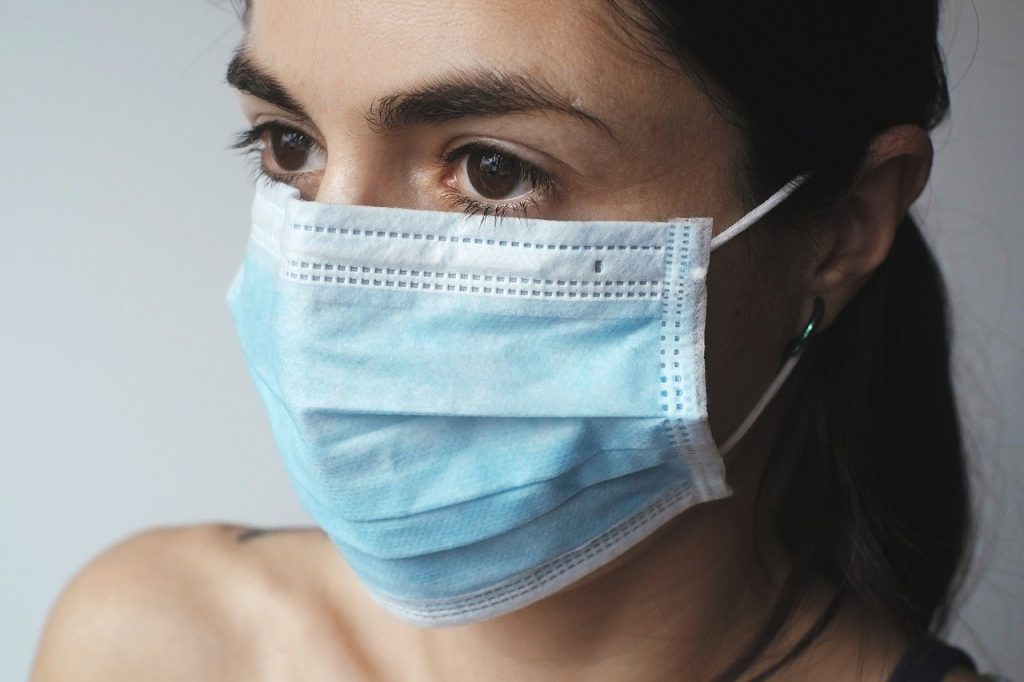As the ‘new normal’ becomes our actual reality, there are lots of changes that all of us have to get used to. From shifting to a work from home setup to strategizing trips to the supermarket, there’s no denying that the new normal has an impact on our lifestyle. It is now also recommended by health experts that everyone should wear a mask to further curb the spread of the virus.
The thing is, wearing masks for long periods results in skin concerns for many. This isn’t a new issue, as medical professionals have been experiencing such concerns for a very long time now. The fact remains, however, that skin irritation and breakouts, a.k.a. ‘mascne’ or mask acne, are becoming pressing concerns for a lot of folks.
How do you deal with this issue? Here are a few tips that dermatologists and skin specialists recommend that you try:
Choose the material of your mask carefully.
If you’re not required to wear a medical-grade mask all the time, you can easily minimize skin irritations and breakouts by choosing the material of your mask carefully. Go for fabrics that won’t chafe against the skin, no matter how mild it may be.
Opting for soft, breathable, natural fabrics like natural cotton are recommended. Some studies also suggest that cotton fabrics with high count can also be effective in filtering particles so they can provide good protection. Experts also advise against synthetic materials as they are often treated with chemicals that can irritate the skin.
However, some cotton and breathable fabrics may not be tightly woven enough to protect you and others. So to ensure safety, it’s best to layer them with tightly woven material on the side that won’t touch your skin. You can also use filters to provide an additional layer of protection.
Don’t touch your face.
Touching your face is a big no-no if you want to avoid getting breakouts and this fact is more pressing nowadays. This is why you shouldn’t touch your face with unwashed hands, especially the area under the mask.
Skip the makeup.
On regular days, cosmetic products can already cause breakouts for clogging your pores. Now that you should be wearing a mask, you’ll be adding a layer of covering to your skin which can make it difficult for your pores to breathe. Sweat, oil, and debris will be trapped under it which can then cause irritations and breakouts.
However, now that you’ll be wearing masks while you’re outside, maybe you can skip wearing some foundation from time to time. Doing so will help your skin breathe a bit more freely, especially the area around your nose and mouth, as you’ll remove a layer of covering.
You can still kill it with your eye makeup if you don’t want to look so bare when going out, though. The great results you got from Brow Art 23 and Amazing Lash Studio can definitely take center stage right now.
Cleanse your skin the right way.
Experts say that you should wash your face as soon as you take off your mask and that you should use gentle cleansers to do so. Washing up right away will help you get rid of whatever may be clogging your pores as soon as possible and can kill any bad bacteria that can wreak havoc on your skin.
Using ultra-gentle cleansers is ideal, too, so your skin won’t be stripped too much of its natural oils and get dried out after washing. Damaging your moisture barrier at this time is not ideal as it will lead to more skin irritation and problems.
Protect your skin from rubbing, chafing, and bruising.
Putting on select skincare products can also be very beneficial. If you’re already suffering from ‘mascne’, you should prevent the mask from rubbing and chafing directly on the irritated areas. Applying spot treatment products and barrier creams can also be of great help to minimize the contact between your skin and the mask.
If you need to wear tight fitting masks like N95 for hours, bruising can be a major issue. To avoid this, you can put occlusive ointments and dressings on the areas that get quite tight. This can help alleviate the pressure in the affected areas. It can also be very helpful to place hydrocolloid bandages in high-impact areas like the bridge of your nose and cheeks. Such add-ons will provide some cushioning to your skin so the masks’ materials won’t directly press onto your skin.
Use over the counter creams to deal with existing issues.
Experts also recommend using OTC 1% hydrocortisone cream for irritations and rashes as well as antibacterial creams on open wounds to prevent infection. If they did not work for you, book a telemedicine appointment with your dermatologist to get medical help.
